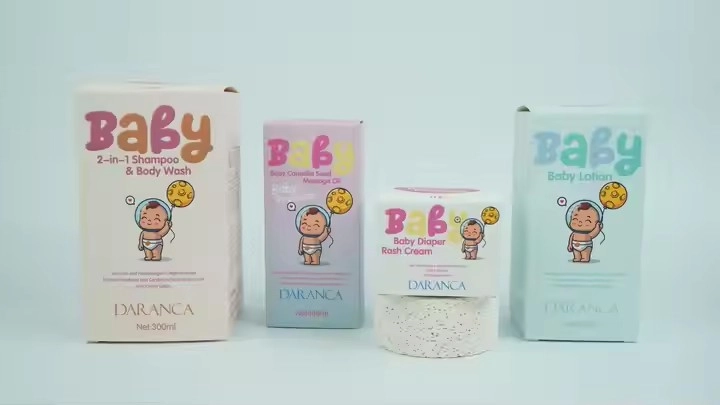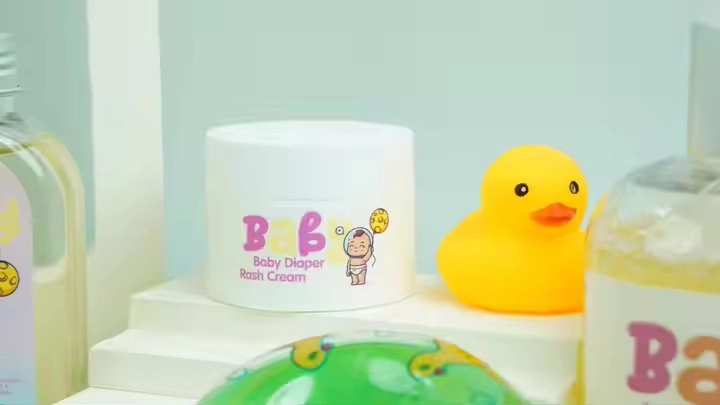Views: 220 Author: cosmeticsinhot Publish Time: 2025-11-15 Origin: Site








Content Menu
● Comparing Baby Care and Body Care
>> Purpose and Target Audience
● Best Practices for Baby Care
● Best Practices for Body Care
When it comes to personal care, the terms "baby care" and "body care" often come up, but they refer to different aspects of skincare and hygiene. Understanding these differences is crucial for parents, caregivers, and anyone interested in skincare. This article will explore the distinctions between baby care and body care, the products involved, and the best practices for each category.

Baby care encompasses a range of products and practices specifically designed for infants and young children. The skin of babies is delicate and sensitive, requiring special attention and gentleness. Baby care products are formulated to be safe, hypoallergenic, and free from harsh chemicals that could irritate a baby's skin.
1. Gentle Formulations: Baby care products are typically free from fragrances, dyes, and other irritants. Ingredients like aloe vera, chamomile, and calendula are common, as they are known for their soothing properties.
2. Safety Standards: Products for babies must meet stringent safety regulations. This includes testing for allergens and ensuring that the ingredients are safe for young skin.
3. Common Baby Care Products:
- Baby Shampoo: Formulated to be tear-free and gentle on the eyes.
- Baby Lotion: Designed to moisturize without clogging pores.
- Diaper Cream: Helps prevent and treat diaper rash.
- Baby Wipes: Soft and gentle for cleaning sensitive areas.
4. Bathing Practices: Bathing a baby requires special techniques to ensure safety and comfort. Parents are advised to use lukewarm water and to limit bath time to avoid drying out the skin.
Body care refers to the broader category of skincare and hygiene products used by adults and older children. This category includes a wide range of products designed to cleanse, moisturize, and protect the skin on the body. Unlike baby care, body care products can contain a variety of active ingredients aimed at addressing specific skin concerns.
1. Diverse Formulations: Body care products can include exfoliants, moisturizers, and treatments for specific skin issues like acne or dryness. Ingredients may vary widely, from natural oils to synthetic compounds.
2. Targeted Treatments: Many body care products are designed to address specific concerns such as aging, sun damage, or hyperpigmentation. This allows for a more personalized skincare routine.
3. Common Body Care Products:
- Body Wash: Cleanses the skin and can include exfoliating properties.
- Body Lotion: Hydrates and nourishes the skin, often with added fragrances.
- Sunscreen: Protects the skin from harmful UV rays.
- Body Scrubs: Exfoliate dead skin cells to reveal smoother skin.
4. Application Techniques: Body care routines can vary significantly. For example, exfoliation is often recommended once or twice a week, while moisturizing should be done daily.
While both baby care and body care aim to maintain skin health, they differ significantly in formulation, purpose, and application. Understanding these differences can help consumers make informed choices.
- Ingredients: Baby care products prioritize safety and gentleness, using minimal ingredients. In contrast, body care products may include a wider range of active ingredients to target specific skin issues.
- Fragrance: Baby products are usually fragrance-free to avoid irritation, while body care products often contain added scents for a pleasant experience.
- Target Audience: Baby care is specifically designed for infants and toddlers, while body care is aimed at older children and adults.
- Skin Sensitivity: Babies have more sensitive skin that can react adversely to many common ingredients found in adult body care products.
- Bathing: Baby bathing techniques focus on safety and comfort, while body care routines can be more elaborate, including multiple steps like cleansing, exfoliating, and moisturizing.
- Frequency: Babies may require less frequent bathing compared to adults, who may have daily routines.
1. Choose the Right Products: Always opt for products labeled as hypoallergenic and specifically formulated for babies. Look for certifications and safety seals.
2. Patch Test New Products: Before using a new product, perform a patch test on a small area of the baby's skin to check for any adverse reactions.
3. Maintain a Routine: Establish a consistent bathing and moisturizing routine to keep the baby's skin healthy and hydrated.
4. Monitor Skin Changes: Keep an eye on any changes in the baby's skin, such as rashes or dryness, and consult a pediatrician if necessary.
1. Know Your Skin Type: Understanding whether your skin is oily, dry, or combination can help you choose the right products.
2. Stay Hydrated: Drinking plenty of water is essential for maintaining skin health from the inside out.
3. Use Sunscreen: Protect your skin from UV damage by applying sunscreen daily, even on cloudy days.
4. Exfoliate Regularly: Incorporate exfoliation into your routine to remove dead skin cells and promote cell turnover.
5. Moisturize Daily: Apply body lotion after showering to lock in moisture and keep the skin hydrated.
In summary, baby care and body care serve different purposes and are designed for different audiences. Baby care focuses on the delicate needs of infants, using gentle, safe products, while body care encompasses a broader range of products aimed at adults and older children, often targeting specific skin concerns. By understanding these differences, consumers can make informed choices that best suit their needs and those of their loved ones.

1. What are the main differences between baby care and body care products?
Baby care products are formulated for infants with gentle, hypoallergenic ingredients, while body care products are designed for older children and adults, often containing active ingredients for specific skin concerns.
2. Can adults use baby care products?
Yes, adults can use baby care products, especially if they have sensitive skin or are looking for gentle formulations.
3. How often should I bathe my baby?
Babies do not need to be bathed daily; two to three times a week is usually sufficient, depending on their activity level and skin condition.
4. What should I look for in baby care products?
Look for products that are hypoallergenic, fragrance-free, and specifically formulated for babies to ensure safety and gentleness.
5. Is it necessary to use sunscreen on babies?
Yes, it is important to protect babies from sun exposure. Use a sunscreen specifically formulated for infants and consult a pediatrician for recommendations.
Hot Tags: China, Global, OEM, private label, manufacturers, factory, suppliers, manufacturing company